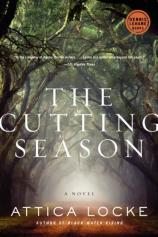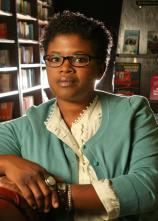Reading Group Guide
Discussion Questions
The Cutting Season

1. The novel opens with a startling scene: "It was during the Thompson-Delacroix wedding, Caren's first day on the job, that a cottonmouth, measuring the length of a Cadillac, fell some twenty feet from a live oak on the lawn." How does this small event foreshadow the events that unfold?
2. Family and the past play a major role in THE CUTTING SEASON. How has slavery shaped America? How does its legacy continue to haunt us? Since the 2008 election of Barak Obama, some have made the claim that America has evolved into a post-racial nation. What does this mean and do you agree? If not, do you think it will ever be possible for us as a society to overcome divisions surrounding race?
3. "Belle Vie was a cipher, really, a place in whose beauty one might find pleasure or pain, leisure or labor. People saw, in its iced columns, in the magnolias and aged oaks, what they wanted to see, what their own history told them to." What did Caren see in Belle Vie? What about her former lover, Eric, and her daughter, Morgan? What about Donovan and the Belle Vie Players? What about the plantations owners, Leland Clancy and his sons, Raymond and Bobby? What do you see in a place like this?
4. Should such a place as Belle Vie be preserved, and if so, why? Is it better to keep reminders of slavery as a lesson for future generations, or to obliterate the pain of the past? Belle Vie is French for beautiful life. How do such pretty names like Belle Vie mask such ugliness and brutality? Can you think of others?
5. Why did Caren return to Belle Vie? How is her life there different from her mother's and those of her ancestors? What is her relationship like with the plantation's owners, Raymond and Bobby? She and Bobby were close as children. What happened to change their relationship?
6. Describe Caren. Why didn't she finish law school? What place does the plantation hold in her past and present --- what does it mean to her? What about her daughter, Morgan?
7. The staff doesn't trust Caren because, "to them, she was management, with a capital M, the eyes and ears of Raymond Clancy. It drew a line between them, like the fence between Belle Vie and those workers in the fields. She worked in the big house now, an ascension of class and station that alienated her from everyone around her, people she worked with everyday, even people whom she'd grown up with, people, who were, for all intents and purposes, family." Why doesn't Caren tell them about her past? Would it change how they viewed her? Would it make their relationship easier or more difficult?
8. Caren does not like Donovan, the young black student and Belle Vie Player who is investigated for the murder of the migrant worker. "He was a twenty-two year old kid, undereducated and over-entitled, of a generation long out of the shadow of the hard work that had made a life like his possible." Expand on Caren's opinion. Do you agree? Is it possible to keep the memory of a painful struggle alive as generations pass? How is that achieved? What does her opinion about Donovan tell us about Caren?
9. Talk about how the police treat Donovan. What motivates their actions? Do you think they are prejudiced, lazy, or corrupt?
10. Farmers have been using immigrant labor for their crops --- jobs that once were done by locals. How has this shift affected the people in this kind of historically tight-knit community? Are they right to be upset by these migrant workers or is their anger misplaced? Do you see any parallels between the modern battle over immigration and migrant workers and those surrounding slavery in the eighteenth century?
11. How do race and immigration complicate the political ambitions of Raymond, Belle Vie's owner? Why isn't Caren more skeptical of him? "I know you appreciate what all the Clancys have done for you and yours," he tells her. What, exactly, have they done that Caren should be grateful for?
12. When her mother tells her the truth about who is paying for her law school education, Caren erupts. "It was no way to start what she considered a new life, one freed from the burdens of a legacy she never asked for, freed from the confines of a world that always put people like the Clancys on top." Is Caren right to be upset? Is her mother, Helen, right to push for what she believes her daughter deserves?
13. Caren tells Eric, "The Clancys have always been big on 'negro education.'" What is the significance of her comment? Do privileged Southern whites like the Clancys owe a debt? Is it truly generosity or a form of unconscious condescension? How long must we answer for the evils of the past?
14. Eric does not want Morgan involved with the investigation of the murder. Is he right or wrong in keeping her away from the police? What about Caren? By not getting involved isn't he corroding the justice system of which he is a part? What are your impressions of Eric? A native of Chicago, does he truly understand Caren's connections to the past? "You're better than this place, Caren," he tells her. Is he right or are his own feelings coloring his judgment?
15. Contrast Eric's comments with those of Ginny, the church secretary who reaches out to help migrant workers. When she learns Caren has been tied to Belle Vie for generations, she tells her, "It's beautiful country out there, just outrageously beautiful. You should be really proud." Does Caren have reason to be proud of the past and her ancestors, despite the pain of their lives?
16. How does Caren's perspective about Belle Vie and her own life shift over the course of the novel?
17. What do you think will --- or should --- happen to Belle Vie?








